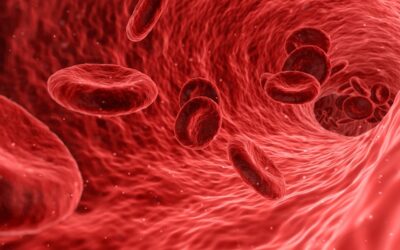According to a new study published in The Lancet, a person’s expectations might play a role in gluten sensitivity. Unlike the placebo effect, which can improve an optimistic person’s symptoms when a “dummy” medication is given, the “nocebo effect” occurs when a person’s condition seems to worsen as a result of their negative expectations.
Although gluten is considered to be safe for the general population, for those diagnosed with celiac disease, avoiding foods that contain wheat, barley, and rye is important because gluten, the proteins within these grains, will provoke a serious autoimmune response in these individuals.
According to David Sanders, a gastroenterologist and professor at the University of Sheffield, England, “Celiac disease affects about 1% of the global population, but the majority of cases are unrecognized.”
Non-celiac gluten sensitivity, which triggers similar gastrointestinal symptoms, is less well understood. Sanders, a celiac disease specialist, says there is currently no clear test for gluten sensitivity, although several studies have shown that individuals diagnosed with non-celiac gluten sensitivity have a different immune response to gluten than those with celiac disease.
Given the close association of gluten sensitivity with irritable bowel syndrome (IBS), considered a gut–brain disorder, the gut–brain interaction might also play a role.
Does expectation matter?
To investigate the role of the nocebo effect and the possible gut–brain interaction in non-celiac gluten sensitivity, the researchers involved in the study recruited participants from England and the Netherlands and rigorously screened them for eligibility.
To be included in the study, a person could not have celiac disease, wheat allergy, or any other gastrointestinal disease, and had to meet other criteria. After screening, 83 people — 71 women and 12 men — between the ages of 18 and 70 were deemed eligible to participate.
Participants were asked to avoid antibiotics, probiotics, and prebiotics, as well as illicit drugs or excessive amounts of alcohol in the two weeks leading up to the study, and had to follow a gluten-free or gluten-restricted diet for at least one week beforehand.
They also answered detailed questionnaires to gauge their gastrointestinal symptoms after eating gluten and to assess their mental health, including anxiety and depression. Among the study population, 35% met the criteria for IBS, reflecting its symptom overlap with gluten sensitivity. Importantly, the researchers ruled out celiac disease through a blood test if any of the screened participants had not been previously tested.
The participants were randomly assigned to one of four groups based on the expectancy to eat gluten-containing or gluten-free bread and the actual intake of gluten-containing or gluten-free bread.
The study was double-blinded, meaning neither the researchers nor the participants knew who would be consuming gluten, and the participants were unaware which intervention group they had been assigned to until the test day, when they were told by a researcher whether to expect gluten-containing or gluten-free bread. The breads were similar in appearance, texture, and taste, and had identical fiber and fermentable oligosaccharide, disaccharide, monosaccharide, and polyol (FODMAP) contents.
On the test day, the participants arrived in a fasted state and answered a baseline questionnaire assessing their symptoms and mood. They were then given a breakfast of two slices of bread — gluten-containing or gluten free — with gluten-free toppings of their choice.
In between breakfast and lunch, which included the same food options, participants were allowed to drink water, tea, and coffee, and every hour after breakfast, throughout the eight-hour test day, they completed the same questionnaire. They answered this questionnaire again on the evening of the test day and on the two following evenings, and were allowed to consume gluten-free bread on the two days after the study.
Confirming the nocebo effect
The researchers statistically analyzed the questionnaire responses and compared the gastrointestinal symptoms across the four groups. They found that the symptom profiles for participants in England and the Netherlands were similar, and the combination of expectancy to receive gluten and actual gluten intake resulted in the highest scores for overall gastrointestinal symptoms, including abdominal discomfort and bloating. Brain fog, confusion, fatigue, and headache were also more commonly reported by participants in the two gluten-expectant groups than the other two groups.
These results clearly indicate a nocebo effect, since the two groups of participants who expected gluten — regardless of whether they actually consumed it — were more likely to report symptoms.
“We found that the combination of expectancy and actual gluten intake had the largest effect on overall and several individual gastrointestinal symptoms, reflecting a considerable nocebo effect, although an additional effect of gluten could not be ruled out,” the researchers stated in their paper.
They also noted that mood did not seem to influence the results. “Contrary to our hypothesis, we found that emotional well-being — i.e., anxiety, depression, or somatization — did not affect differences between groups for overall and individual gastrointestinal symptom scores during the test day.”
The researchers acknowledged the possibility of selection bias, since more anxious people might have been less likely to participate in the study.
Sanders agreed with this study limitation. “People who think they have NCGS often have severe symptoms so they don’t tend to take part in studies, so we get recurrent negative signals,” he said.
It’s also possible that FODMAPs, carbohydrates found in wheat, are actually the problem for some individuals and not gluten.
Gluten-free diets are also associated with a higher risk of nutritional deficiencies, so avoiding gluten without a medical reason could not only be unnecessary but potentially bad for your health. For these reasons, it’s important to properly identify trigger foods before making assumptions.
Reference: Daisy M. A. E. Jonkers, et al., The effect of expectancy versus actual gluten intake on gastrointestinal and extra-intestinal symptoms in non-coeliac gluten sensitivity: a randomised, double-blind, placebo-controlled, international, multicentre study, The Lancet Gastroenterology & Hepatology (2023). DOI: 10.1016/S2468-1253(23)00317-5
Feature image credit: Louise Lyshøj on Unsplash

















